SESSION #4
Agile Discovery and Innovation:
Advancing Tomorrow’s Vaccines, Treatments, and Cures
Friday, November 19, 2021 | 8:30 – 10:30 am PT
QUICKLINKS:
Live Event
Overview
COVID-19 vaccines will forever stand as a milestone scientific achievement. The speed of their development and their astonishing efficacy have opened doors that will shape the future of biomedicine. The final session of this symposium series will explore how to build on this watershed moment – from bold R&D investment to regulatory science. We’ll discuss how we can enable agile medicine, advance therapeutics, and leverage the full potential of cutting-edge platforms deployed during the pandemic and those yet to be discovered.
Virtual Event Program
Date | Friday, November 19, 2021
Time | 8:30 – 10:30 am PT
Opening Remarks: Session Introduction
8:30 – 8:35 am
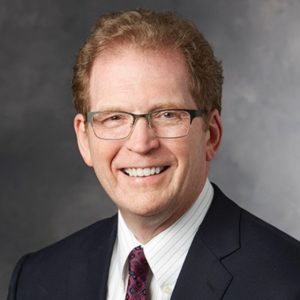
Lloyd Minor, MD
Dean, Stanford School of Medicine
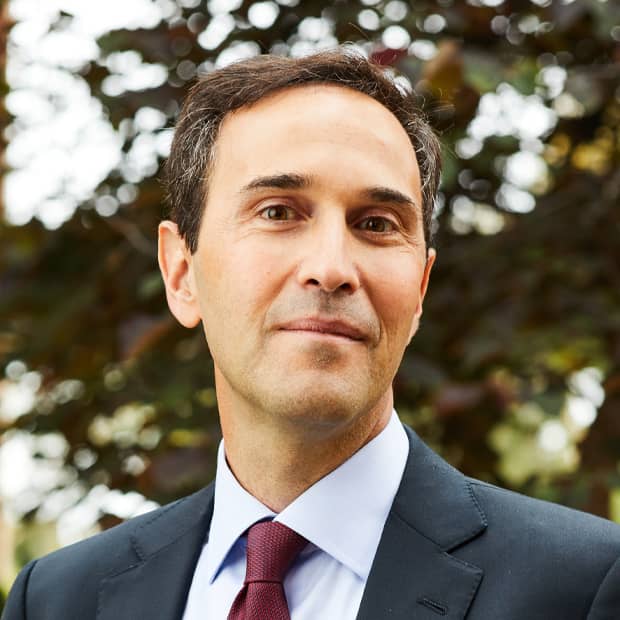
Jonathan Levin, PhD
Dean, Stanford Graduate School of Business
Jonathan Levin is the Philip H. Knight Professor and Dean of Stanford Graduate School of Business. He was appointed as the 10th dean of the school in September 2016. Levin joined the Stanford faculty as an assistant professor in 2000. He was later appointed the Holbrook Working Professor of Price Theory in the Department of Economics, and Department Chair from 2011 to 2014. He has taught market design, game theory, microeconomics, and industrial organization at the undergraduate and graduate levels. He was also professor, by courtesy, at the Stanford Graduate School of Business, a senior fellow at the Stanford Institute for Economic Policy Research, and director of the Industrial Organization Program at the National Bureau for Economic Research.
FIRESIDE CHAT: COVID-19 AND THE FUTURE OF CLINICAL TRIALS
8:35 – 8:50 AM
This fireside chat between FDA Acting Commissioner Janet Woodcock and Dean of the Stanford School of Medicine Lloyd Minor will cover the most pressing policy issues affecting biomedical research, development, and innovation. How can we ensure agile approval processes, like those for the COVID-19 vaccines, for future scientific breakthroughs? In what ways will telemedicine and digital health shape the future of clinical trials? And how can we ensure equity and representation as we bring new treatments, therapies, and vaccines to market?
Moderator

Lloyd Minor, MD
Dean, Stanford School of Medicine
Speaker
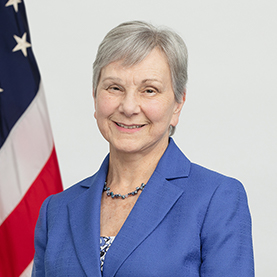
Janet Woodcock, MD
Acting Commissioner
U.S. Food and Drug Administration
As the head of the FDA, Janet Woodcock, MD, oversees the safety and effectiveness of human and veterinary drugs, vaccines, and other biological products, and medical devices. She has extensive expertise and experience in drug approval and safety. Prior to being named acting commissioner, she advised Operation Warp Speed on the development of therapeutics during the COVID-19 pandemic while also serving as the Principal Medical Officer to the Commissioner. She has served in numerous roles at the FDA since 1986, during which she oversaw the approval of the first biotechnology-based treatments for multiple sclerosis and cystic fibrosis, introduced the concept of risk management as an approach to drug safety, modernized drug manufacturing and regulation, and advanced medical discoveries from the laboratory to consumers more efficiently.
PANEL: REALIZING THE PROMISE OF DIGITAL HEALTH
8:50 – 9:20 AM
The pandemic has spurred record-shattering investment in digital health – as millions of people stayed at home and the setting of care for many moved online. As we prepare for the next normal, how will this market adapt? Learn how companies and health care providers are working to hardwire their digital health gains and transform what’s possible for patients.
Moderator

Megan Zweig
Chief Operating Officer
Rock Health
As Chief Operating Officer, Megan leads the Enterprise Membership, research, and operations teams at Rock Health. Through thought partnership, the power of community, and market-leading research, her teams support enterprise clients advancing their digital health strategies via the startup innovation ecosystem. Prior to joining Rock Health, Megan worked at The Advisory Board Company, where she led the Physician Executive Council, a best practice research membership supporting Chief Medical Officers at over 1,300 hospitals and health systems nationwide. Megan received an MBA from Berkeley Haas, where she graduated valedictorian of her executive MBA class in January 2020. Megan graduated cum laude from Duke University, earning a BA in Public Policy Studies with a focus on health policy.
Panelists
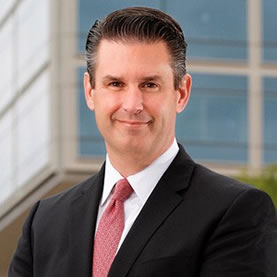
David Entwistle
President and CEO
Stanford Health Care
David Entwistle is President and CEO of Stanford Health Care (SHC), where he has served since 2016. Among other achievements, he has championed the development and implementation of an integrated strategic plan that unites SHC, the Stanford School of Medicine, and Stanford Children’s Health under a common vision to lead a biomedical revolution in Precision Health. He has also spearheaded the completion of the new Stanford Hospital, which opened to patients in fall 2019, representing the culmination of more than a decade of planning and a critical component to Stanford Medicine’s COVID-19 response. Previously, he served as CEO of the University of Utah Hospital & Clinics (UUHC) for nine years. While at UUHC, the organization earned a number of prestigious accolades, including a No. 1 national ranking by Vizient in its annual Quality and Accountability Study of U.S. academic medical centers. Prior to UUHC, Entwistle served as Senior Vice President and Chief Operating Officer of the University of Wisconsin Hospital and Clinics in Madison, Wisconsin from 2002-2007. He was also the former Vice President of Professional Services and Joint Venture Operations at City of Hope National Medical Center in Duarte, California. He is a board member of the American Hospital Association, the AAMC Council of Teaching Hospitals, the Accreditation Council for Graduate Medical Education and Vizient (formerly University HealthSystem Consortium). He is the past chair of the Utah Hospital Association and was appointed by the governor of Utah to the state’s Medicaid Task Force.

David Rhew, MD
Global Chief Medical Officer and VP of Healthcare
Microsoft
Dr. David Rhew is the Global Chief Medical Officer (CMO) and Vice President (VP) of Healthcare for Microsoft. He is the Chairman of the Health and Fitness Technology Division for the Consumer Technology Association and serves on CTA’s Board of Industry Leaders. He co-holds six U.S. technology patents that enable authoring, mapping, and integration of clinical decision support into the electronic health record. David is currently an Adjunct Professor at the Stanford University School of Medicine. He received his Bachelors of Science degrees in computer science and cellular molecular biology from the University of Michigan. He received his MD degree from Northwestern University and completed internal medicine residency at Cedars-Sinai Medical Center. He completed fellowships in health services research at Cedars-Sinai and infectious diseases at the University of California, Los Angeles. He has served as CMO and VP for Samsung; Senior Vice President and CMO at Zynx Health Incorporated; clinician/researcher in the Division of Infectious Diseases at the VA Greater Los Angeles Healthcare System; and Associate Clinical Professor of Medicine at UCLA. He has also served on the National Quality Forum’s (NQF) Executive Committee for Consensus Standards and Approval.

Julia Hoffman, PsyD
Head of Mental Health Strategy
Teladoc Health
Dr. Julia Hoffman is head of clinical strategy, mental health for Teladoc Health, a company empowering people everywhere to live their healthiest lives by transforming the healthcare experience. She was previously National Director of Mobile Health for Mental Health and Suicide Prevention at the U.S. Department of Veterans Affairs, the largest integrated healthcare system in the country. Dr. Hoffman is a licensed clinical psychologist (CA) who attended Stanford University, completed a Psy.D. in clinical psychology at the PGSP-Stanford Psy.D. Consortium, and a fellowship at Yale University School of Medicine. Dr. Hoffman has led the creation, evaluation, and broad international dissemination of numerous technology-based behavioral health tools. She founded and scaled mobile development for behavioral health at both the United States Department of Defense (DoD) and the United States Department of Veterans Affairs (VA) and has been honored for these efforts by President Barack Obama, the US House of Representatives, the FCC, the American Telemedicine Association, and the American Psychological Association. A recognized thought leader at the intersection of digital and behavioral health, Modern Healthcare named Dr. Hoffman to the Top 25 Emerging Leaders program.
FIRESIDE CHAT: PEDIATRIC VACCINATION: MOVING AT THE SPEED OF TRUST
9:20 – 9:35 AM
Now that COVID-19 vaccination has been authorized for children ages five to eleven in the U.S., how can we ensure widespread pediatric immunization? Stanford Medicine pediatrician Dr. Grace Lee, who chairs the U.S. Advisory Committee on Immunization Practices (ACIP), will share her insights on this rapidly evolving issue. From combatting vaccine skepticism to rebuilding confidence in health institutions, everything rests on winning the trust of parents and families.
Moderator

Paul King
President and CEO
Stanford Children's Health
Paul A. King joined Stanford Children’s Health (SCH) in January 2019 bringing with him a distinguished career of more than 30 years as a health care executive, including leadership positions at several nationally recognized academic medical centers. Prior to joining SCH, King led the University of Michigan’s C.S. Mott Children’s Hospital and Von Voigtlander Women’s Hospital as Executive Director. Prior to joining C.S. Mott Children’s Hospital, King served as president and CEO for the Pediatric Management Group, a 550-physician academic pediatric subspecialty group practice affiliated with Children’s Hospital Los Angeles (CHLA). His strong leadership record also includes senior management roles at the Mayo Clinic and the Samaritan Physicians Center. He is currently on the Board of Trustees for the Children’s Hospital Association and holds a bachelor’s degree in Business Administration and Economics from the University of Nebraska, at Lincoln; and a master’s degree in Health Care Administration from the University of Iowa, Iowa City. He is also a Certified Medical Practice Executive.
Speaker
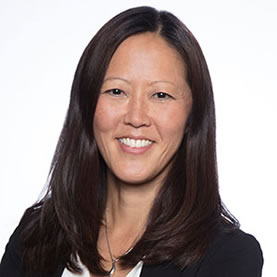
Grace Lee, MD, MPH
Associate Chief Medical Officer for Practice Innovation, Stanford Children’s Health and Professor of Pediatrics (Infectious Diseases)
Stanford Medicine
Dr. Grace Lee is Professor of Pediatrics at the Stanford University School of Medicine and Associate Chief Medical Officer for Practice Innovation at Stanford Children’s Health. In her current role, Dr. Lee primarily serves as a clinical and administrative leader for the health system focused on bridging quality, research and implementation for the organization. She is currently the Chair of the U.S. Advisory Committee on Immunization Practices (ACIP) that sets recommendations for the use of vaccines in the U.S. population, including COVID-19 vaccines. She previously served as the Principal Investigator (PI) on the CDC-funded Vaccine Safety Datalink project. She was also the Associate Director of the FDA-funded Mini-Sentinel Project and PI of several AHRQ-funded grants. She previously served as a member on the Institute of Medicine Committee (IOM) to Review Priorities in the National Vaccine Plan, the IOM Committee on the Ethical and Scientific Issues in Studying the Safety of Approved Drugs, NASEM’s Vaccine Research and Development Recommendations for Advancing Pandemic and Seasonal Influenza Preparedness and Response, and AHRQ’s Healthcare Safety and Quality Improvement Research Study Section. She served as a Board Member for the Society for Healthcare Epidemiology of America (SHEA), Pediatric Infectious Diseases Society (PIDS), and the National Academy of Medicine Board on Population Health and Public Practice.
BREAK
9:35 – 9:40 AM
PANEL: BIOMEDICINE BEFORE AND AFTER COVID-19
9:40 – 10:10 AM
Through unprecedented collaboration, partnership with government, and agile innovation, pharmaceutical manufacturers have altered the pandemic’s course and saved millions of lives. Is this just the start of things to come?
Moderator

Meg Tirrell
Senior Health and Science Reporter
CNBC
Meg Tirrell is CNBC’s senior health and science reporter. Since joining CNBC in April 2014, she has covered the development of new medicines for Alzheimer’s, cancer and rare diseases, and tracked public health emergencies from Ebola to Zika to the COVID-19 pandemic. Her reporting has also chronicled the massive set of trials seeking to hold the drug industry accountable for the opioid epidemic, market failures that have led to life-threatening drug shortages, and the ongoing fight over the cost of medicines. Prior to joining CNBC, she covered the biotechnology industry for Bloomberg News, where she also contributed to Bloomberg Television and Bloomberg Businessweek. She holds a master’s degree in journalism from Northwestern University and a bachelor’s degree in English and Music from Wellesley College. You can follow her on Twitter @megtirrell.
Panelists
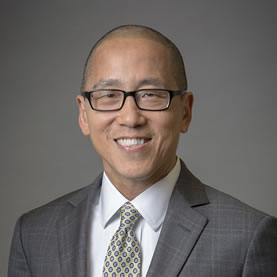
Dean Li, MD, PhD
Executive Vice President and President
Merck Research Laboratories
Dean Li serves as executive vice president and president of Merck Research Laboratories. He leads the company’s worldwide human vaccines and therapeutics research and development organization. Since joining Merck in 2017 Dean has held leadership roles in the Translational Medicine and Discovery functions and was appointed to President, Merck Research Laboratories in January 2021. Prior to joining Merck, he held positions of increasing responsibility in translational medical research at the University of Utah. Most recently he served as the H.A. & Edna Benning Professor of Medicine and Cardiology, chief scientific officer, associate vice president and vice dean at the University of Utah Health System. From 2015 to 2016, he also served as interim CEO of Associated Regional University Pathologists, one of the United States’ largest clinical reference laboratories. During his tenure at the University of Utah, he co-founded several biotechnology companies based upon research conducted in his laboratory, including Recursion Pharmaceuticals, Hydra Biosciences and Navigen Pharmaceuticals. Dean received his Bachelor’s degree in Chemistry from the University of Chicago and his graduate and clinical training at Washington University School of Medicine in St. Louis. Dean is a board-certified cardiologist, a member of the American Society for Clinical Investigation and the Association of American Physicians.

Susan Athey, PhD
Professor of the Economics of Technology
Stanford Graduate School of Business
Susan Athey is The Economics of Technology Professor at Stanford Graduate School of Business. She received her bachelor’s degree from Duke University and her PhD from Stanford, and she holds an honorary doctorate from Duke University. She previously taught at the economics departments at MIT, Stanford, and Harvard. She is an elected member of the National Academy of Science, and is the recipient of the John Bates Clark Medal, awarded by the American Economics Association to the economist under 40 who has made the greatest contributions to thought and knowledge. Her current research focuses on the economics of digitization, marketplace design, and the intersection of econometrics and machine learning. She has worked on several application areas, including timber auctions, internet search, online advertising, the news media, and the application of digital technology to social impact applications. As one of the first “tech economists,” she served as consulting chief economist for Microsoft Corporation for six years, and now serves on the boards of Expedia, Lending Club, Rover, Turo, and Ripple, as well as nonprofit Innovations for Poverty Action. She also serves as a long-term advisor to the British Columbia Ministry of Forests, helping architect and implement their auction-based pricing system. She is the founding director of the Golub Capital Social Impact Lab at Stanford GSB, and associate director of the Stanford Institute for Human-Centered Artificial Intelligence.

Melinda Richter
Global Head of Innovation JLABS
Johnson & Johnson Innovation
Melinda Richter is the champion for entrepreneurs and startups, who drive potential breakthrough ideas and approaches to address unmet medical needs and combat public health threats and unmet medical needs of today, and those imagined and unimagined of tomorrow. She founded Johnson & Johnson Innovation – JLABS, the global incubator network of Johnson & Johnson Innovation, to connect budding startups in the life sciences to the critical resources, mentorship and community to support their success. Of the 770+ JLABS portfolio companies across our 13 sites, 31% are female-led and 30% in the U.S. are minority-led, well above the industry average.
Before joining Johnson & Johnson, Melinda was Founder and CEO of Prescience International, an award-winning firm dedicated to accelerating research to the patient. Melinda founded Prescience after she had a medical emergency that left her questioning the efficiency and efficacy of the healthcare system. With the tenacity and resolve of a patient looking for a better solution, she set out to create a better model, which now forms the basis for JLABS. Prior to starting Prescience, Melinda held posts across a variety of functional areas with a global corporation, Nortel Networks in Research Triangle Park, New York, Toronto, London, Hong Kong and Beijing before arriving in San Francisco. She also raised capital and secured large corporate deals for companies in both the life science and technology space.
She holds a B.Comm from the University of Saskatchewan in Canada and an MBA from INSEAD in France. Melinda is Board Chair of California Life Sciences (CLS), a board member of BIO’s Technology Transfer Committee, and a member of the National Cancer Advisory Board Ad Hoc Working Group of the National Cancer Institute Small Business Innovation Research Program.
FIRESIDE CHAT: STAGING TOMORROW’S MOONSHOTS
10:10 – 10:25 AM
Vaccines weren’t developed in months; they were the product of decades-long investments in basic life sciences research. Yet, medicine today remains primed to reward translation and investment in proprietary R&D. As the U.S. considers standing up ARPA-H, what lessons can we draw from the pandemic to guide its priorities and our nation’s overall investment in fundamental research?
Moderator
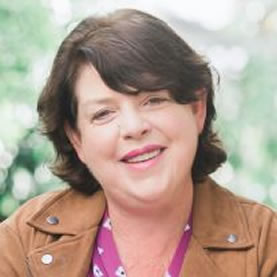
Ruth O'Hara, PhD
Senior Associate Dean, Research
Stanford Medicine
Dr. O’Hara is the Senior Associate Dean for Research in the Stanford University School of Medicine, and the Lowell W. and Josephine Q. Berry Professor, Psychiatry and Behavioral Sciences, Stanford University School of Medicine. She also serves as the Director of Stanford’s NIH-funded Clinical and Translational Science Award (CTSA). Dr. O’Hara’s research integrates neurophysiological data with in-depth clinical and behavioral phenotyping in patients with mental health disorders. She leads an extensive research program focused on sleep, brain function and resilience in neurodegenerative and neurodevelopmental disorders. Dysregulated sleep has profound implications for public health and a significant focus of Dr. O’Hara’s research is improving sleep to confer increased resilience against mental health symptoms. She has had substantial NIH and non-NIH funding to support this work, including a Simon’s Foundation award, to examine the links between sleep physiology and neurodevelopment and neurodegeneration. Dr. O’Hara served on the Sleep/Wake Workgroup of the Diagnostic and Statistical Manual (DSM 5), which provides diagnostic classification for the field of psychiatry. She has also led one of the largest multi-site Post-Doctoral training programs, at 28 training sites across the United States, mentoring a generation of independent, academic clinical research investigators. Dr. O’Hara is currently the Chair of the Stanford University, 54th Academic Senate.
Speaker
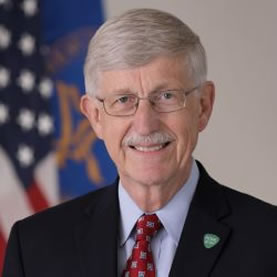
Francis Collins, MD, PhD
Director
U.S. National Institutes of Health
Francis Collins, MD, PhD, has served as NIH director for three presidents, overseeing the work of the largest supporter of biomedical research in the world. He is a physician-geneticist noted for his landmark discoveries of disease genes and his leadership of the international Human Genome Project, which culminated in April 2003 with the first complete identification and mapping of the human genome. Prior to being appointed by President Barack Obama to head the NIH in 2008, he was the director of the National Human Genome Research Institute at NIH. He is an elected member of both the National Academy of Medicine and the National Academy of Sciences, and in 2007 was awarded the Presidential Medal of Freedom
CLOSING REMARKS FROM THE DEANS
10:25 – 10:30 AM